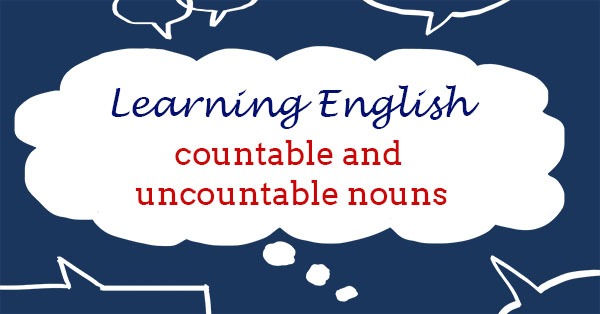
Countable nouns are the words for things that we can count. They have singular and plural forms. They can have a or an in front of them. If they are singular, they must have a word like a, an, the or his in front of them.
She ate an apple.
Where shall I put my coat?
He took the dogs out for a walk.
His children have left home.
Uncountable nouns are the words for things that cannot be counted. They cannot have a or an in front of them, and they do not have a plural form.
I asked her for some advice.
Mix the water with the flour.
Here are some very common uncountable nouns. Be careful with them, because they may be countable in other languages. Remember that the verb that goes with them must be singular.
advice air anger beauty behaviour damage furniture
happiness homework information luggage meat progress knowledge
money safety water work
The meat was not cooked properly.
The damage has not been repaired.
The information he gave us was correct.
Her behaviour upsets everyone.
When it is necessary to think of an item as countable, it has to be used with a partitive noun.
He bought seven sheets of cardboard.
Let me give you a piece of advice.
They bought several items of furniture.
Come back for more blogs on using English in everyday situations: https://blog.collinsdictionary.com/language-learners/learning-english/
All opinions expressed on this blog are those of the individual writers, and do not necessarily reflect the opinions or policies of Collins, or its parent company, HarperCollins.



